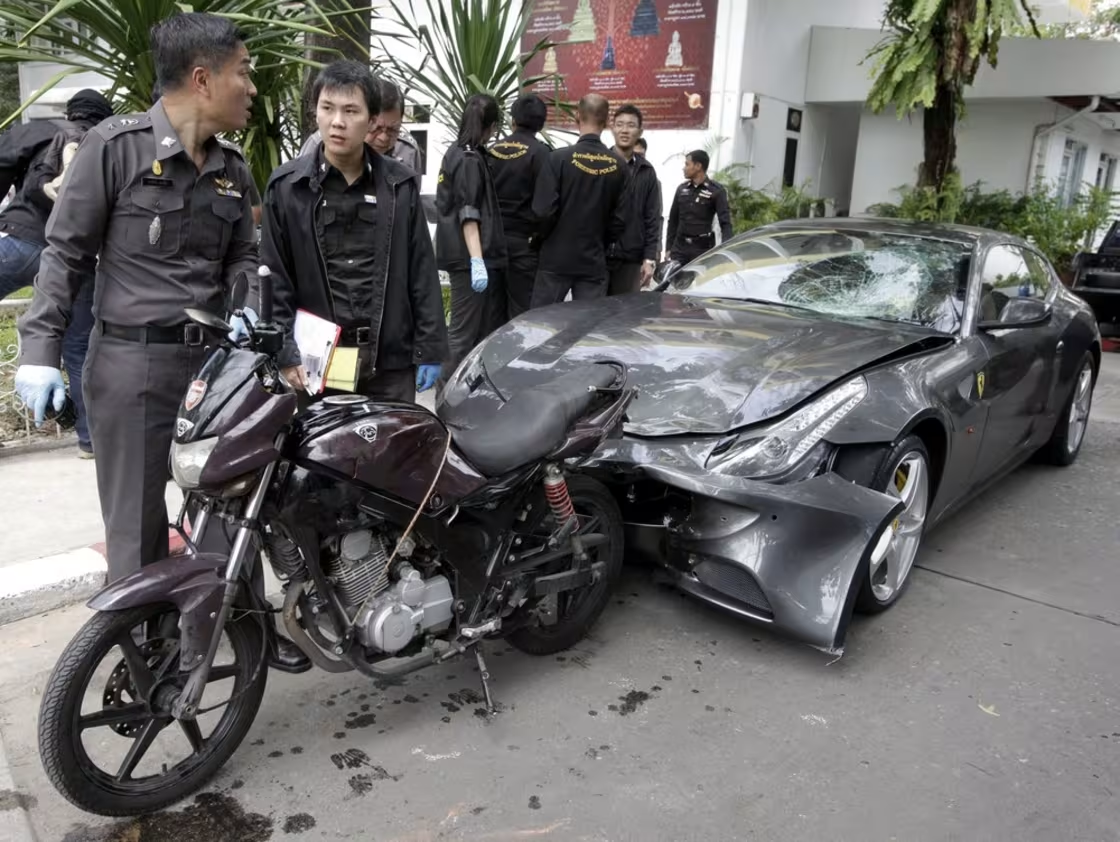Energy Drinks: Are They Worth the Heart Risk?
-
Red Bull started in Thailand. THey still sell the original recipe here. I think in the US, a can goes for about $2-3? In Thailand, the original comes in a small bottle and sells for about $0.35.
I have never tried neither, so have no idea why the big difference in price (or how much difference in taste)
@taiwan_girl said in Energy Drinks: Are They Worth the Heart Risk?:
Red Bull started in Thailand. THey still sell the original recipe here. I think in the US, a can goes for about $2-3? In Thailand, the original comes in a small bottle and sells for about $0.35.
I have never tried neither, so have no idea why the big difference in price (or how much difference in taste)
I think I mentioned this before, maybe on the old board, but there has been a long ongoing story about the grandson of the guy who started Red Bull ran over a police man in a hit and run. He eventually left the country to avoid trial, etc. Lots of accusing of corruption, payoffs to the police, etc. Anyways, the latest
https://www.nationthailand.com/news/general/40049090
Two former senior public prosecutors were jailed by the Central Criminal Court for Corruption and Misconduct Cases on Tuesday after being found guilty of helping Vorayuth "Boss" Yoovidhya, heir to the Red Bull fortune, initially escape prosecution in a 2012 fatal hit-and-run case.
and
As of April 2025, Vorayuth Yoovidhya remains a fugitive. The only remaining charge against him is reckless driving causing death, which carries a statute of limitations until 2027.

-
-
Red Bull owner has a private hangar in Salzburg. What do you know about him?
Dietrich Mateschitz was an Austrian entrepreneur best known as the co-founder of Red Bull GmbH, the company behind the globally popular energy drink. Born on May 20, 1944, in Sankt Marein im Mürztal, Austria, he passed away on October 22, 2022, at the age of 78.  
Early Life and Career
Mateschitz earned a degree in marketing from the Vienna University of Economics and Business. He began his career in marketing, working for companies like Unilever and Blendax, a German cosmetics firm. During a business trip to Thailand in the early 1980s, he discovered a local energy drink called Krating Daeng. Recognizing its potential, he partnered with Thai businessman Chaleo Yoovidhya to adapt and market the drink for Western audiences. In 1984, they founded Red Bull GmbH, launching the beverage in Austria in 1987. The brand quickly gained popularity, becoming a global leader in the energy drink market.    
Hangar-7 in Salzburg
Mateschitz was passionate about aviation and established Hangar-7 at Salzburg Airport to house his collection of historical aircraft, known as The Flying Bulls. Opened in 2003, Hangar-7 is an architectural landmark featuring a glass and steel dome structure. It serves not only as an aircraft museum but also hosts art exhibitions and is home to Restaurant Ikarus, a Michelin-starred establishment that features a rotating roster of guest chefs from around the world.   
Sports and Media Ventures
Under Mateschitz’s leadership, Red Bull expanded beyond beverages into sports and media. He acquired and rebranded several sports teams, including:  
• Football Clubs: Red Bull Salzburg (Austria), New York Red Bulls (USA), RB Leipzig (Germany), and Red Bull Bragantino (Brazil). 
• Formula One: In 2004, Red Bull purchased the Jaguar Racing team, rebranding it as Red Bull Racing. The team has since won multiple Constructors’ and Drivers’ Championships. Additionally, Red Bull acquired the Minardi team, renaming it Scuderia Toro Rosso (now Scuderia AlphaTauri). Red Bull also established Red Bull Media House, producing content across various platforms, including television, print, and digital media. 
Legacy
At the time of his death, Mateschitz was considered Austria’s richest person, with a net worth estimated at $27.4 billion. He was known for his privacy and rarely gave interviews. His son, Mark Mateschitz, inherited his 49% stake in Red Bull GmbH.  
Mateschitz’s impact on global marketing, sports, and media continues to influence industries worldwide. 
-
I actually did not know the background. Wikipedia to the rescue!!
Red Bull was derived from a similar drink called Krating Daeng which originated in Thailand and was introduced by the pharmacist Chaleo Yoovidhya. While doing business in Thailand, Austrian entrepreneur Dietrich Mateschitz purchased a can of Krating Daeng and claimed it cured his jet lag. Mateschitz sought to create a partnership with Yoovidhya and formulated a product that would suit the tastes of Westerners, such as by carbonating the drink.[18] In 1984, the two founded Red Bull GmbH in Fuschl am See, Salzburg, Austria.[19] When branding their new product, Mateschitz referenced Krating Daeng's name: in Thai, daeng means red, and a krating (known in English as a gaur) is a large species of wild bovine native to the Indian subcontinent. Red Bull and Krating Daeng use the same red bull on yellow sun logo while continuing to market their drinks separately in the Thai and Western markets.
-
@Horace said in Energy Drinks: Are They Worth the Heart Risk?:
For some reason I am all but afraid to try an energy drink. I guess I never will.
Same!!!
I have brought some Thai Red Bull back to the US for people to try. They say it is more bitter and not as "sweet" as the US version. It is also 5-10x cheaper in Thailand. LOL
-
Jocko Willink, now a podcaster and motivational speaker, is a former navy seal team commander whose unit was the most decorated special forces unit of any kind in both the Iraq and Afghanistan wars.
He never drinks caffeine at all, except for when they would go out on patrol he’d have two Red Bulls. I can’t imagine what that would do to someone with no caffeine habit.